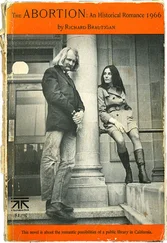Richard Dowling - The Duke's Sweetheart - A Romance
Здесь есть возможность читать онлайн «Richard Dowling - The Duke's Sweetheart - A Romance» — ознакомительный отрывок электронной книги совершенно бесплатно, а после прочтения отрывка купить полную версию. В некоторых случаях можно слушать аудио, скачать через торрент в формате fb2 и присутствует краткое содержание. Издательство: Иностранный паблик, Жанр: foreign_prose, на английском языке. Описание произведения, (предисловие) а так же отзывы посетителей доступны на портале библиотеки ЛибКат.
- Название:The Duke's Sweetheart: A Romance
- Автор:
- Издательство:Иностранный паблик
- Жанр:
- Год:неизвестен
- ISBN:нет данных
- Рейтинг книги:3 / 5. Голосов: 1
-
Избранное:Добавить в избранное
- Отзывы:
-
Ваша оценка:
- 60
- 1
- 2
- 3
- 4
- 5
The Duke's Sweetheart: A Romance: краткое содержание, описание и аннотация
Предлагаем к чтению аннотацию, описание, краткое содержание или предисловие (зависит от того, что написал сам автор книги «The Duke's Sweetheart: A Romance»). Если вы не нашли необходимую информацию о книге — напишите в комментариях, мы постараемся отыскать её.
The Duke's Sweetheart: A Romance — читать онлайн ознакомительный отрывок
Ниже представлен текст книги, разбитый по страницам. Система сохранения места последней прочитанной страницы, позволяет с удобством читать онлайн бесплатно книгу «The Duke's Sweetheart: A Romance», без необходимости каждый раз заново искать на чём Вы остановились. Поставьте закладку, и сможете в любой момент перейти на страницу, на которой закончили чтение.
Интервал:
Закладка:
"To His Grace the Duke of Long Acre.
"P.S. – By-the-way, the people about whom I am to tell you the romance, are namesakes of yours.
CHAPTER VI.
WHAT'S IN A NAME?
When the Duke of Long Acre got Edward Graham's letter, he immediately packed off the easel and colours. He liked Graham very much, and Graham loved him. Cheyne was one of those men who are always asked to do odd jobs for friends. He was good-humoured, of active habits, and liked to be busy always.
Although he was prompt about the commission he had received, he had no intention of doing the other thing Graham asked. No inducement of an ordinary kind could drag him out of London just now. He was moderately busy for the papers and magazines to which he contributed, and he was exceedingly busy with the affairs of his heart.
There was no happier lover in all London than Charles Augustus Cheyne. He loved his love, and his love loved him, and he envied no man's lot. She was as bright and dear a sweetheart as ever man had, and he loved her in a thoroughly comfortable common-sense way. He had written about romantic love, but he had never felt a pang of it in his private experience. Romance was a good thing in a book, for it amused one, but it was a poor stock-in-trade on which to begin matrimony. So he kept his romance for the public and his friends, and his straightforward manhood for his sweetheart. "Sweetheart" is the finest love-word we have in English, and she was his sweetheart-his sweetheart-his sweet heart.
He loved her simply, frankly, wholly, without any mental reservation. He never told her he wanted to die for her, or that she was blameless or perfect. He told her she was as good a girl as any man ever might hope to marry. He knew she was as well as he knew that two and two are four. He praised her face less than was reasonable. He told her she had most lovely eyes, which was a temperate and judicial way of putting the matter. He was quite sure of his girl. He did not want anyone to tell him anything about her. He did not want her to tell him anything about herself. The only thing he wanted was to make her happy, and he thought he could do that. If she were happy he should be happy for three reasons-first, because he had an excellent constitution and was not soured by ill-health; secondly, because he had a gay and cheerful nature; thirdly, because the very sight of her happiness could not fail to be a source of abiding joy to him.
When he put his arms round her he always felt glad he was big enough and strong enough to protect her. Once, while holding her a moment in his arms, he said:
"I could crush you to death now. May, if I liked."
"You great bear, don't frighten me to death first," she said.
"Or," he added, "I think I could kill any man who annoyed you; of course I mean who injured you desperately."
"Well," she said, "as I don't mean to be injured dreadfully by anyone, as I don't want to be frightened to death or crushed to death, I don't see why you should not let me go. Oh dear, men are such plagues."
Yes, Charles Augustus Cheyne was a very strong man physically; mentally he was by no means so strong. Notwithstanding the fact that he told lies by the thousand, no one ever dreamed of saying he was a dishonourable man. He made no earthly use of his lies. If he told a new acquaintance that he had the day before dined with the Marquis of Belgravia, and his listener then asked him to dinner next day, Cheyne would most certainly decline to go. If he lied he lied for his own pleasure, not for his profit, not for the injury of anyone. He never said a bad word of any man he knew, and he never said a bad word of any member of the aristocracy, for had he not broken the bread of every member of it?
But of all the weak points in Cheyne's mental equipment the weakest was a dread of an allusion to his family. Any allusion to his people always made him uncomfortable; and, where he could possibly manage to do so, he always changed the conversation as soon as possible. When asked point-blank who his father was, he replied in almost the same form of words: "My father was a poor gentleman who met many reverses of fortune." He never said anything about his mother, and those who knew him best had long ago made up their minds that he had no right to his father's name, and that Cheyne had been his mother's name, or an assumed one. Indeed most of his friends were convinced that neither his mother nor father had borne the name of Cheyne.
He did not know much more about himself than those around him. He did not remember his father or mother. His earliest recollection was of an elderly spinster who wore corkscrew curls, kept a day-school for young ladies, and took in a few boarders. He was one of these boarders, and now he always looked back on that part of his life with the deadliest hatred. Two facts connected with that establishment clung to his imagination with terrible tenacity. First, that he never got anything to eat there but bread steeped in boiled milk; secondly, that on frosty days his schoolmistress hit him on the knuckles with a lead-pencil because he did not hold his pen properly. Even now the smell of bread steeped in boiling milk made him ill.
From this school he was sent to another, a private one kept by a clergyman in Cumberland. No one ever visited him, and he never left school for holidays. He did not know who paid for him at those houses. He had a small allowance of pocket-money. At school he had displayed some taste for literature. He always took first place in essay-writing. He assumed from this that the clergyman must have suggested he should in some way be linked to literature: for when he left school, at sixteen years of age, the clergyman told him a situation had been secured for him in a publisher's office in London. The clergyman came up to town with him, introduced him to his new master, handed him a ten-pound note, saying it came from his guardian, and then took leave of him.
From the day he left that old maid's school he had never seen or heard anything of her. From the day that clergyman handed him the that ten-pound note and bade him good-bye he had never seen or heard anything of him. At the date he first found himself in the publisher's office he was too young to set any inquiries on foot about himself; and as time went on and he began to know something of the world and its ways, he came to the conclusion he had no right to his father's name, and that the one he bore was his mother's. When he had grown to be a man he felt deeply the humiliation of his position, and made up his mind to look no further into the matter, lest what was now only matter of inference might become matter of certainty. "Let sleeping dogs lie" was the motto he adopted, and he had never departed from it. To Marion Durrant he had told all he absolutely knew of himself. He had not told her anything he inferred or suspected. He had been told by the clergyman who had looked after his education that both his father and mother were dead. He had told Marion that he had never known either his father or mother, that they were both dead, that he had no memory of his childhood and youth apart from those two schools, and that as far as he knew he had no relative alive. But he had said nothing to her of his misgivings or doubts.
From all this it will be seen that Graham's allusion to the story connected with Anerly and his name would be anything but an inducement for Cheyne to leave London for that Devonshire village.
Every day he found his way out to Knightsbridge, and every day he had long sweet hours with his May.
It was afternoon on the day he got Graham's letter before he could leave home, and four o'clock had struck before he knocked at the hall-door of the little house in Knightsbridge.
When he came into the room where Marion Durrant sat hemming an apron, she said:
Читать дальшеИнтервал:
Закладка:
Похожие книги на «The Duke's Sweetheart: A Romance»
Представляем Вашему вниманию похожие книги на «The Duke's Sweetheart: A Romance» списком для выбора. Мы отобрали схожую по названию и смыслу литературу в надежде предоставить читателям больше вариантов отыскать новые, интересные, ещё непрочитанные произведения.
Обсуждение, отзывы о книге «The Duke's Sweetheart: A Romance» и просто собственные мнения читателей. Оставьте ваши комментарии, напишите, что Вы думаете о произведении, его смысле или главных героях. Укажите что конкретно понравилось, а что нет, и почему Вы так считаете.












